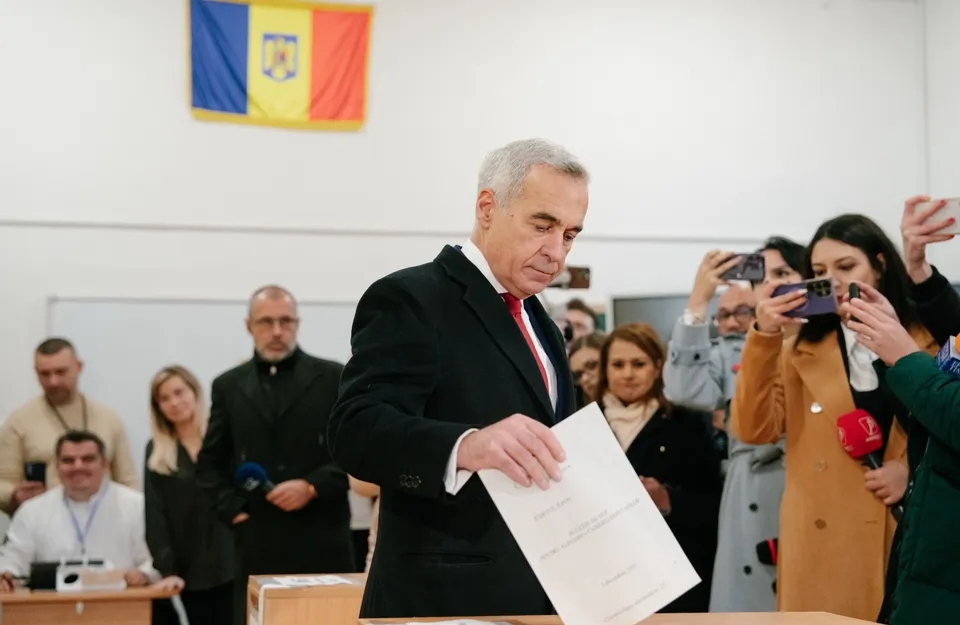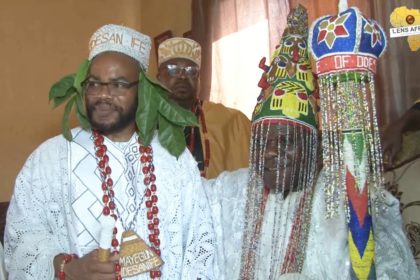
By Adeyemi Adekunle
Romania is ready for one of the most consequential elections in its post-communist history as voters head to the polls on Sunday to choose between two starkly different visions of the country’s future. In a presidential runoff that is being closely watched in Brussels and beyond, far-right nationalist George Simion faces off against centrist reformist Nicușor Dan.
At stake is more than just a presidency—it is Romania’s identity within Europe, its democratic institutions, and the ideological soul of a nation still navigating the fragile legacy of its authoritarian past.
George Simion, the 38-year-old leader of the Alliance for the Union of Romanians (AUR), has campaigned on a platform that champions nationalism, family values, and fierce opposition to what he calls “Brussels bureaucracy.” He has openly criticized Romania’s military support for Ukraine and questioned the country’s EU obligations, framing his vision as a reclaiming of Romanian sovereignty from foreign influence.
Simion’s rise reflects a deeper frustration among segments of the population disillusioned with political elites and economic stagnation. His support is strongest in rural regions and among the diaspora in countries like Spain and Italy, where Romanians working low-wage jobs have grown skeptical of establishment promises and EU-led reforms.
But his ascent has alarmed pro-democracy advocates and European leaders. Critics warn that Simion represents not just a political alternative, but a potential threat to democratic norms, judicial independence, and Romania’s post-1989 trajectory of Western integration. Echoes of Viktor Orbán’s Hungary and even Donald Trump’s populism are evident in Simion’s style—a blend of grassroots mobilization, digital media savvy, and anti-establishment rhetoric.
On the other side of the runoff is Nicușor Dan, the 55-year-old mayor of Bucharest and a symbol of Romania’s technocratic, reform-oriented wing. A mathematician by training and a longtime anti-corruption crusader, Dan has staked his campaign on transparency, institutional renewal, and deepening Romania’s ties with the EU and NATO.
Dan’s candidacy appeals largely to urban professionals, young voters, and civil society groups that see the current moment as a turning point: either Romania consolidates its democratic institutions or risks sliding into the authoritarian patterns resurfacing across Central and Eastern Europe.
His campaign, though less fiery, taps into a growing demand for competence over charisma. Dan promises practical governance—revamping infrastructure, strengthening rule of law, and rooting out the remnants of political patronage. Yet his greatest challenge remains convincing a fatigued electorate that reform can be effective and that democratic values are worth preserving amid economic uncertainty.
The significance of this election is not lost on European leaders. Romania, strategically located on NATO’s eastern flank, plays a crucial role in the regional security architecture, especially amid ongoing tensions with Russia. A shift toward isolationism under Simion could weaken EU cohesion, particularly on sanctions, border policy, and Ukraine aid.
Brussels is also concerned about internal EU stability. With far-right movements gaining traction in France, Germany, and Italy, Romania’s election could embolden populist factions or, alternatively, reinforce the EU’s pro-democracy bloc.
“The outcome of this vote could be a litmus test for the EU’s ability to defend liberal democratic values in its newer member states,” said one senior European diplomat. “Romania is no longer on the periphery—it’s central to the European project’s credibility.”
Beyond geopolitics, the runoff reveals a country increasingly split between two realities. For some, Simion embodies cultural pride and resistance to foreign domination. For others, Dan represents the only viable path toward a modern, stable, and inclusive Romania.
This division is not merely political—it’s generational, geographical, and socio-economic. It reflects the unresolved tensions between Romania’s past and future, between nostalgia and progress, between populism and pragmatism.
Sunday’s vote will not simply determine who sits in Cotroceni Palace. It will shape the tone of Romania’s politics for years to come, influencing judicial independence, press freedom, minority rights, and foreign policy orientation. A Simion presidency could usher in an era of conservative nationalism and institutional rollback. A Dan victory might provide a fragile but essential buffer against democratic erosion.
As polls open, Romanians are not just casting ballots for a president. They are choosing a path—a forked road between retreat and reform, between division and unity, between the insular and the European.
The world is watching. And Romania is deciding.



